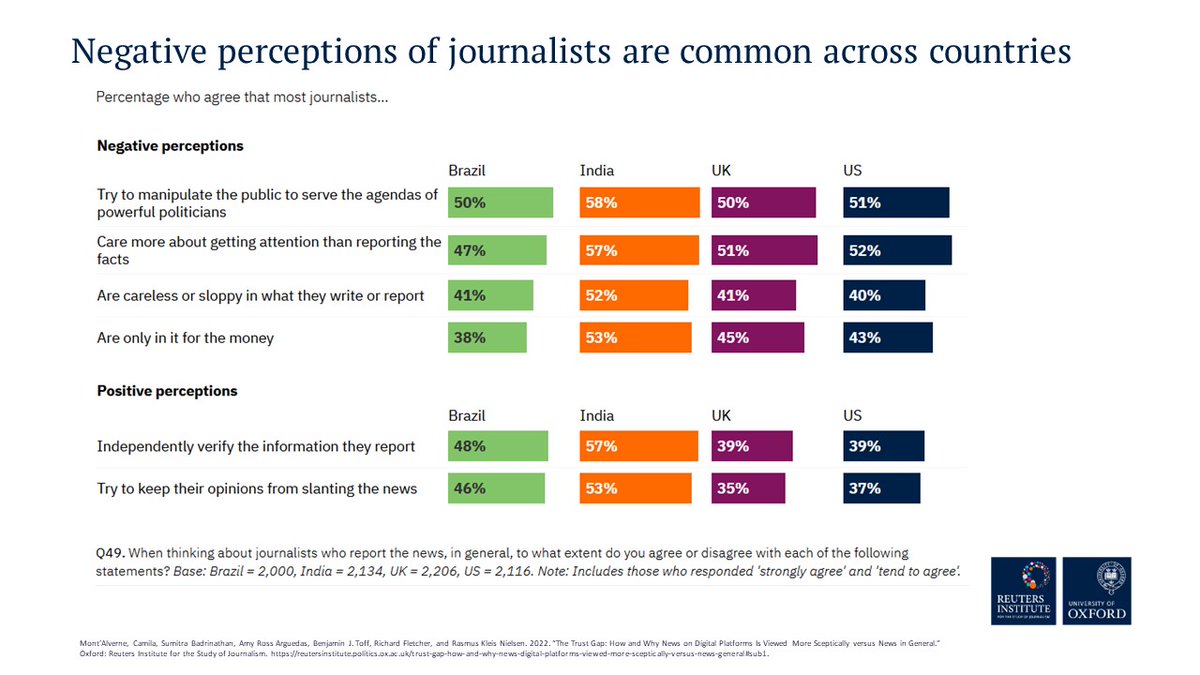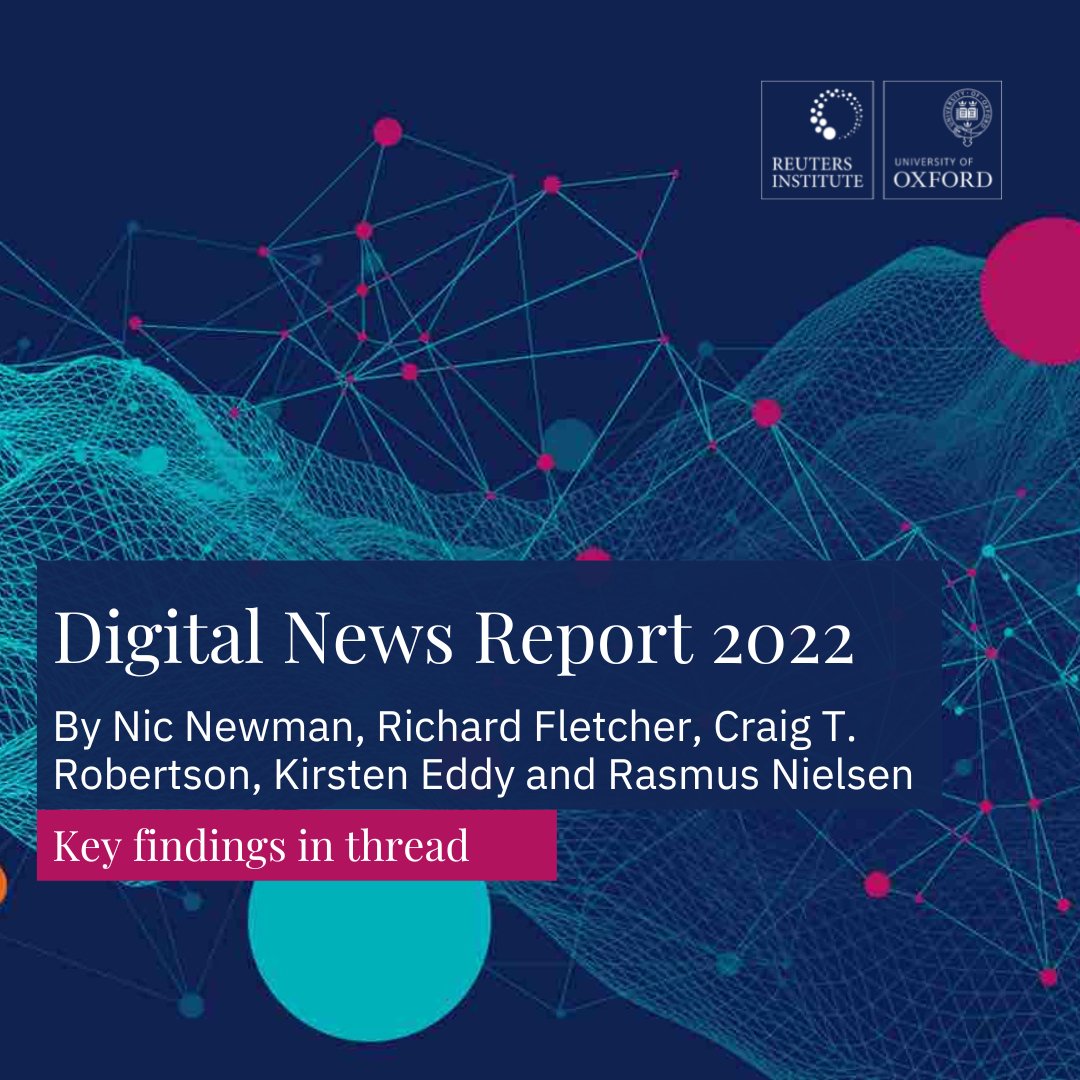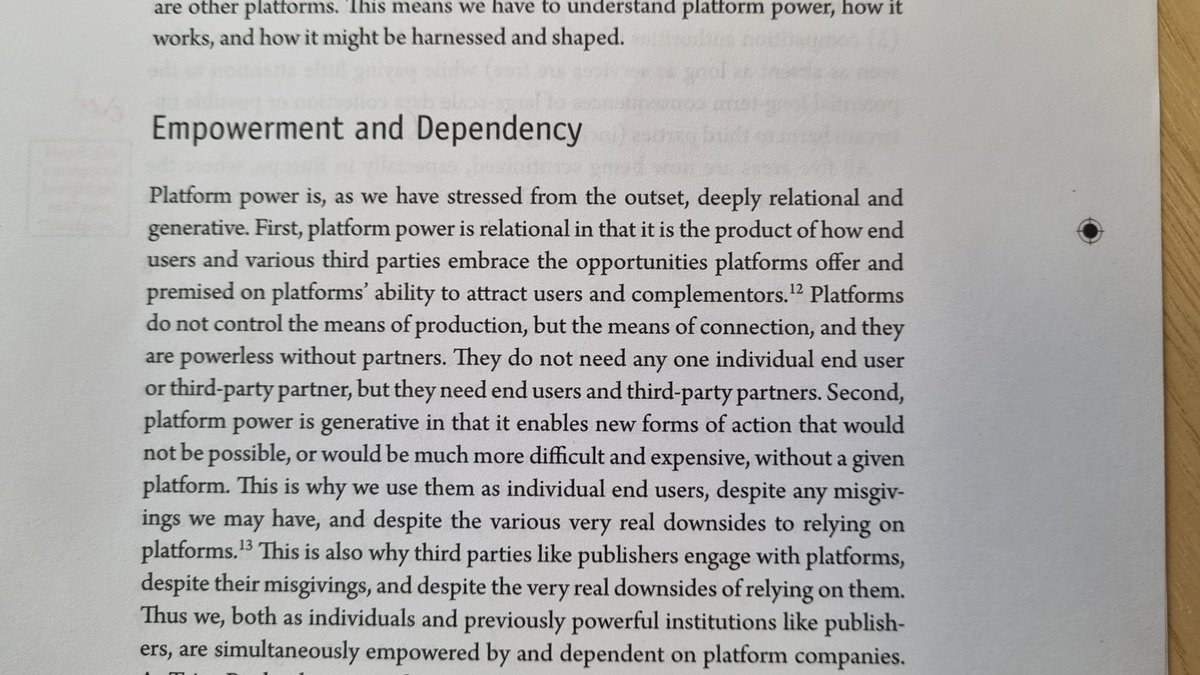
Trust in news: the good, the bad, and the ugly - spoke about @risj_oxford Trust in News Project at #WNMC22
The GOOD news, from publishers' POV, is the "trust gap" between news in general and news on various platforms - news media stand out from just "stuff on the internet" 1/7
The GOOD news, from publishers' POV, is the "trust gap" between news in general and news on various platforms - news media stand out from just "stuff on the internet" 1/7

BAD news, in already difficult context facing political attacks, competition from platforms, & much more, is that negative perceptions are very widespread. Half or more of survey respondents say they think journalists try to manipulate the public to serve powerful politicians 2/7 

UGLY news is that, when we talk to journalists trying to address low trust and overcome negative perceptions, the things they focus on (e.g. transparency, audience engagement) are very different from what audiences focus on (relevance, familiarity, reputation for integrity) 3/7 

News publishers who want to build trust and overcome negative perceptions face some strategic and tactical choices, including WHO they focus on (deeping existing audiences' trust, broadening trust) and WHY (is trust end in itself, or a means to other ends, e.g. subscriptions) 4/7 

Most publishers we interview want trust, but when asked what they do to build it, many mostly mention things they are already doing anyway - e.g. invest in original reporting, seperate news/opinion etc. Many aren't doing much specifically to build trust, so I ended w/some Qs 5/7 

This is how I frame CHALLENGE (low trust, distrust, even hostility), OPPORTUNITY (many want to feel able to trust at least some news meda), and CHOICE (not clear business as usual gives them that) facing publishers who want to actively do something specifically to build trust 6/7 

Trust in news project is led by @BenjaminToff, @amyross87 @camilambpp @sayanbpolitics and our former colleague @KhariBiskut, working w/@richrdfletcher and myself, supported by Facebook Journalism Project.
More about project and our published work here reutersinstitute.politics.ox.ac.uk/trust-news-pro… 7/7
More about project and our published work here reutersinstitute.politics.ox.ac.uk/trust-news-pro… 7/7
• • •
Missing some Tweet in this thread? You can try to
force a refresh












